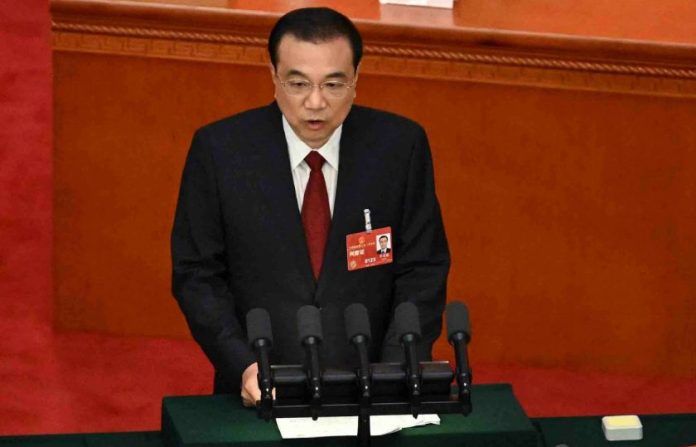China said on Sunday its military spending would rise at the fastest pace in four years, warning of “escalating” threats from abroad at a meeting of its rubber-stamp parliament that will hand Xi Jinping a third term as president.
The increase in the world’s second-largest defence budget came as Beijing announced an economic growth goal of around five per cent for this year — one of its lowest in decades.
The country’s planned budgets for the year put defence spending at 1.55 trillion yuan ($225 billion), a 7.2pc rise and the quickest rate of increase since 2019. It officially rose 7.1pc last year.
Outgoing Premier Li Keqiang told delegates to the National People’s Congress (NPC) that “external attempts to suppress and contain China are escalating”.
“The armed forces should intensify military training and preparedness across the board,” he said as he presented the government’s annual work report to thousands of amassed delegates in Beijing’s Great Hall of the People.
The military must “devote greater energy to training under combat conditions, and … strengthen military work in all directions and domains”, he added.
China’s defence spending still pales in comparison with the United States, which has allotted over $800 billion for its military this year.
But analysts have said Beijing spends much more money than the officially announced sums.
The ramped-up spending comes during a low point in relations between China and the United States.
Beijing and Washington have butted heads in recent years over trade, human rights and other issues, but relations soured even further last month when the US shot down a Chinese balloon it said was being used for surveillance — a claim strenuously denied by Beijing.
Top American officials have also repeatedly warned that China may invade Taiwan in the coming years, pointing to Beijing’s increasingly assertive military moves around the self-ruled island, which it sees as its own territory and has vowed to bring under its control.
Niklas Swanstrom, director of the Stockholm-based nonprofit the Institute for Security and Development Policy, said Beijing appeared to be “investing in its capacity to take over Taiwan and keep the US out of the region”.
But James Char, an expert on China’s military at Singapore’s Nanyang Technological University pointed out that several countries across Asia were boosting their defence spending, in part due to “their respective threat perceptions of the regional security landscape”.

















